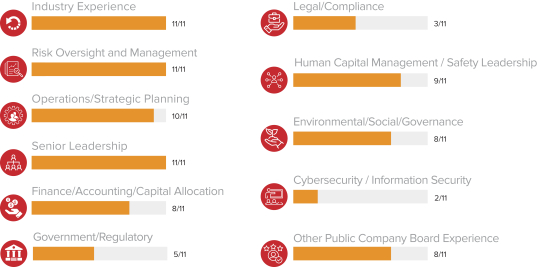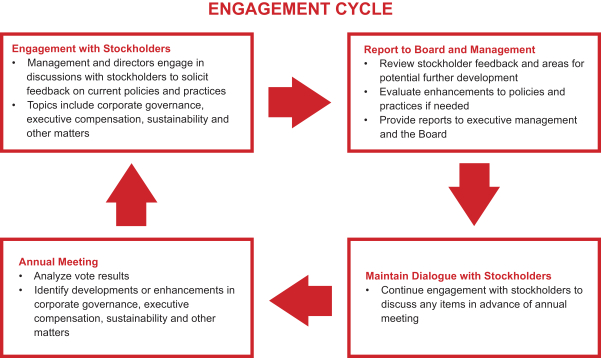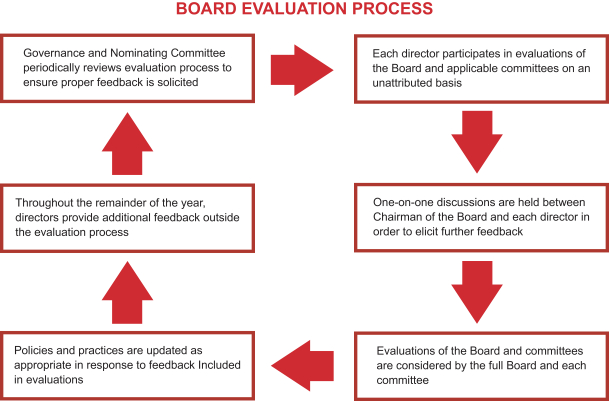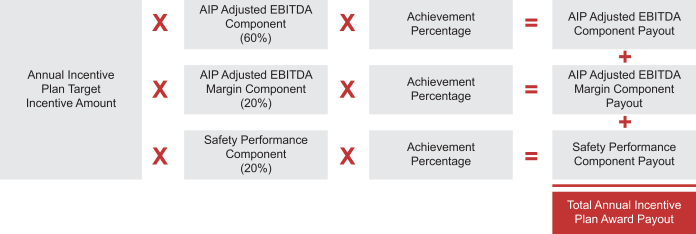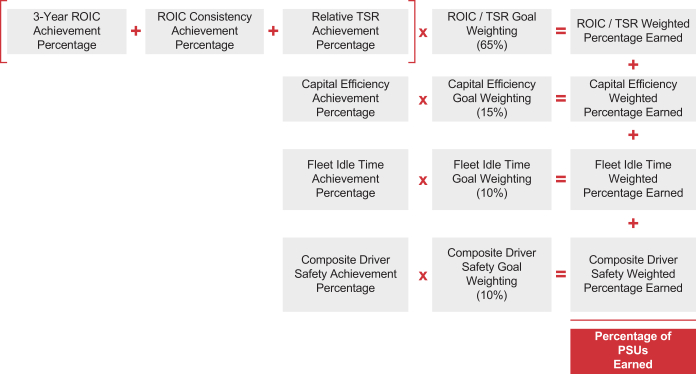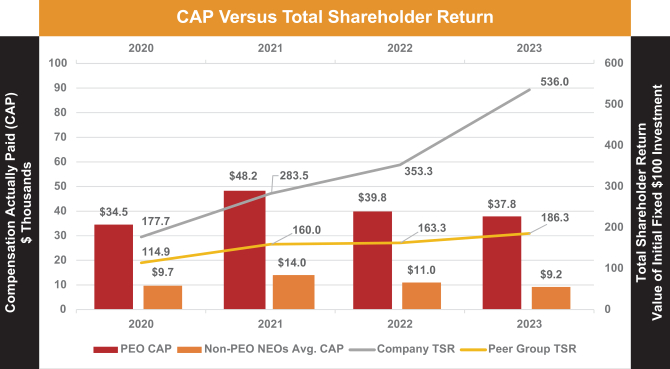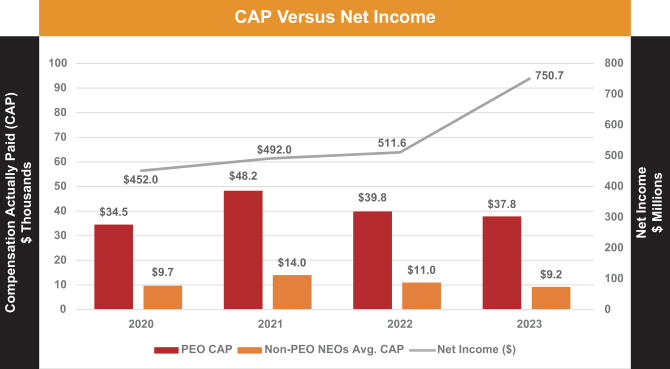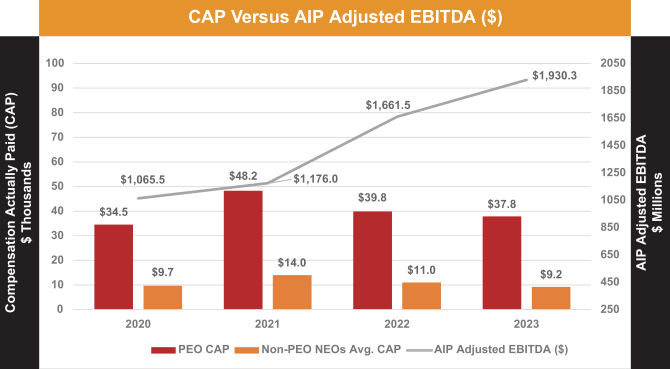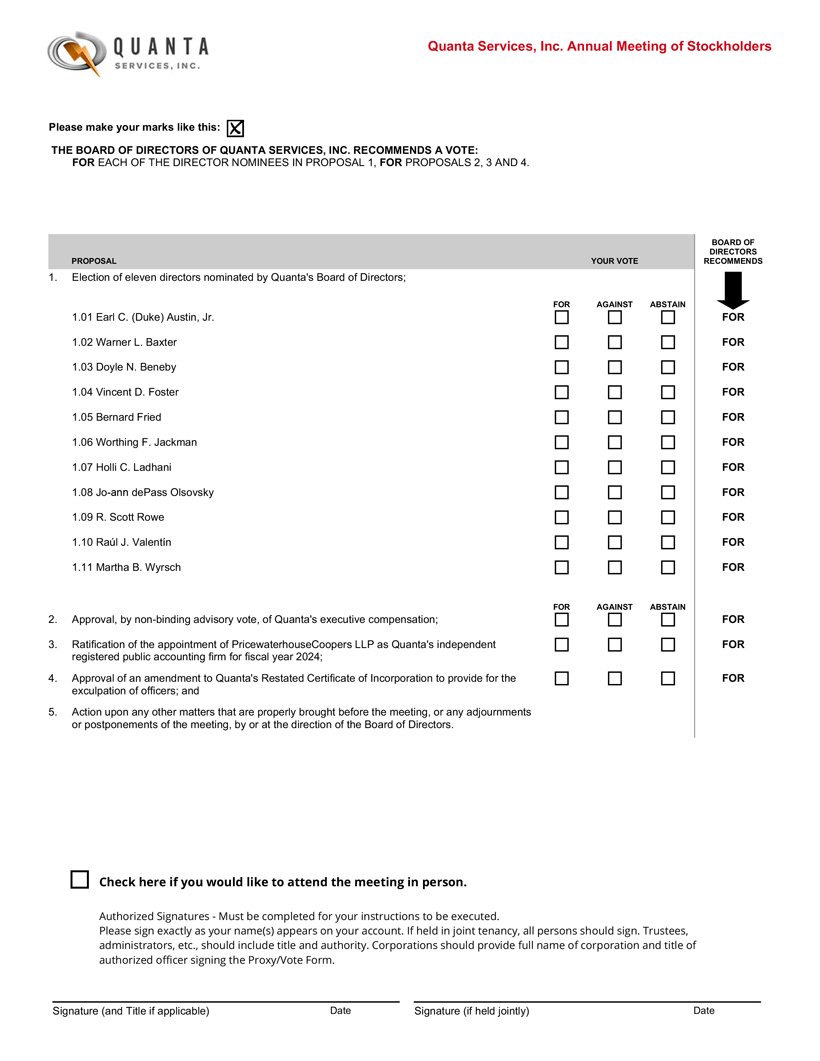CERTAIN
TRANSACTIONS
Related Party Transactions
North Houston Pole Line, LP (“North Houston”) and Digco Utility Construction, L.P. (“Digco”), each a wholly-owned subsidiary of Quanta, are party to certain facility leases with Properties Etc. Partnership, LP (“Properties Etc.”), the general partner and 50% owner of which is Earl C. (Duke) Austin, Jr., who is our President, Chief Executive Officer and a director. During 2023, these subsidiaries of Quanta paid an aggregate of $516,952 to Properties Etc. in rent expense to these leases. These leases have terms through August 2026, and as of December 31, 2023 provided for aggregate remaining lease obligations of $1,378,538 through the conclusion of the lease terms. In addition, North Houston is a party to a facility lease with Mr. Austin and paid Mr. Austin $174,240 in rent expense for 2023 related to this lease and, over the term of the lease, North Houston has incurred certain costs associated with necessary leasehold improvements to this property. As of December 31, 2023, the aggregate remaining lease obligations under this lease were $464,640 through the conclusion of the lease term in August 2026. Further, North Houston is a party to a facility lease with Mr. Austin’s father and paid Mr. Austin’s father $217,800 in rent expense for 2023 related to this lease. As of December 31, 2023, the aggregate remaining lease obligations under this lease were $580,800 through the conclusion of the lease term in August 2026. These leases relate primarily to facilities that were occupied by North Houston when Quanta acquired North Houston in 2002. Based upon an independent market valuation, we believe that the rental rates of these leases are aligned with fair market value.
Additionally, during 2023, Quanta employed Colton Austin, the son of Mr. Austin. Colton Austin received an aggregate of $293,539 from Quanta in salary, non-equity incentive compensation, health and welfare coverage and 401(k) plan matching contributions. In addition, during 2023 Quanta granted 193 RSUs to Colton Austin, with a grant date fair value of $160.05 per share, vesting in three equal annual installments beginning in the first quarter of 2024. The RSUs were granted on the same terms and conditions as RSUs granted to other U.S. employees in 2023.
During 2023, Digco employed Cross Austin, the son of Mr. Austin. Cross Austin received an aggregate of $188,638 from Digco in salary, non-equity incentive compensation, health and welfare coverage and 401(k) plan matching contributions. In addition, during 2023 Digco granted 77 Quanta RSUs to Cross Austin, with a grant date fair value of $160.05 per share, vesting in three equal annual installments beginning in the first quarter of 2024. The RSUs were granted on the same terms and conditions as RSUs granted to other U.S. employees in 2023.
Warner L. Baxter, a nominee for director, previously served as Chairman, President and Chief Executive Officer of Ameren Corporation from 2014 until January 2022, and as Executive Chairman from January 2022 until November 2023. Ameren Corporation is a customer of Quanta and accounted for approximately $66.0 million, or 0.3%, of the Company’s consolidated revenues for the fiscal year ended December 31, 2023.
Certain wholly-owned subsidiaries of Quanta, are party to certain facility leases with Three String Holdings, LLC, the 40% owner of which is Redgie Probst, who is our Chief Operating Officer. During 2023, these subsidiaries of Quanta paid an aggregate of $998,018 to Three String Holdings in rent expense related to these leases and, over the term of the leases, the subsidiaries have incurred certain costs associated with necessary leasehold improvements to these properties. These leases have terms extending through October 2028, and as of December 31, 2023, provided for aggregate remaining lease obligations of $4,038,304 through the conclusion of the lease terms. In addition, a certain Quanta subsidiary is a party to a facility lease with Wasatch Aviation 1, LLC (“Wasatch”), the 50% owner of which is Mr. Probst, and paid Wasatch $54,000 in rent expense for 2023 related to this lease and incurred $300,000 in costs associated with leasehold improvements to this property. As of December 31, 2023, the aggregate remaining lease obligations under this lease were $193,500 through the conclusion of the lease term in July 2027. Further, certain wholly-owned Quanta subsidiaries are party to certain facility leases with PSB Holdings, LLC, the 33.3% owner of which is Mr. Probst. During 2023, these subsidiaries of Quanta paid an aggregate of $258,000 to PSB Holdings in rent expense related to these leases. The leases have terms extending through May 2027, and as of December 31, 2023, provided for aggregate remaining lease obligations of $859,967. Further, certain wholly-owned Quanta subsidiaries are party to aircraft dry lease agreements with Wasatch that provide for certain business and operational-related travel, and subsidiaries of Quanta paid an aggregate of $1,941,204 in 2023 to Wasatch under these leases. Additionally, another wholly-owned subsidiary of Quanta is party to a facility lease with P&C Investments, LLC., which is partially owned by Mr. Probst, and paid P&C Investments, LLC. $122,274 in rent expense related to the lease.










